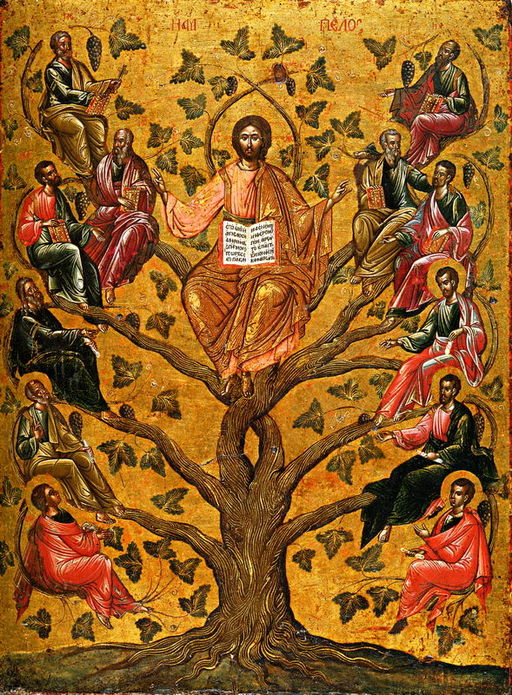
A Tree and Its Fruit
Imagine you’re a disciple in Luke 6…
As the sun begins to cast morning shadows, we see that Jesus has finished praying. He picks his way over the mountain side toward us. He calls us to him and chooses twelve as his apostles, the “sent ones.” Among the jostling of Simon, Andrew, James, and the rest I’ve been selected. I’ve given up everything to follow Him. I’ve made it into the in-crowd.
Jesus heads down the mountain toward an open place. The crowds are waiting, peering past us to look for him. He heals the people in such a display that if the afflicted press in and touch him, arms straighten, wounds close, coughs cease, and eyes can see.
But he pauses to look at me and his other followers and his mouth opens. His words are not gentle words to affirm his new apostles. Instead, they seem meant to flatten any pride we may have gained.
Jesus: “Blessed are you when men hate you, when they exclude you and reject your name as evil because of the Son of Man . . . Woe to you when all men speak well of you, for that is how their fathers treated false prophets.” (Luke 6: 22-26)
My thoughts: Didn’t I just leave my family for You? Didn’t you just make me one of the select? You’re telling me I’m going to suffer more?
Jesus: “But love your enemies, do good to them, and lend to them without expecting to get anything back.”(Luke 6:35a)
My thoughts: Even these jackasses that just criticized You a few days ago for healing on the Sabbath? They’re scheming right now.
Jesus: “Do not judge, and you will not be judged.” (Luke 6:37a)
My thoughts: But I was raised to follow the Law passed down from our ancestors and separate myself from those who don’t.
Jesus: “First take the plank out of your own eye, and then you will see clearly to remove the speck from you brother’s eyes.”(Luke 6:42b)
My thoughts: How can I see my own foibles if they’re that big? Do you know how competitive and nasty these guys around me can be when You’re not looking?
And then, he tells us about the two trees.
Jesus: “No good tree bears bad fruit, nor does a bad tree bear good fruit. Each tree is recognized by its own fruit. People do not pick figs from thornbushes, or grapes from briers. A good man brings good things out of the good stored up in his heart, and an evil man brings evil things out of the evil stored up in his heart. For the mouth speaks what the heart is full of.” (Luke 6:43-45)
Trees I know about. Not only with my experience of grabbing a piece of fruit and tossing it if it’s rotten but from the Psalms. There’s the man who delights in the law of the Lord instead of hanging out with “mockers.” He’s “like a tree planted by streams of water which yields its fruit in season.” The prophet Jeremiah says the same: “the man who trusts in the LORD . . will be like a tree . . . who never fails to bear fruit.”
But Your last line is what pricks me: “For the mouth speaks what the heart is full of.”
What is my heart full of? Questions. Disgust with this person to my left who clearly wants Your attention. Annoyance with the stink of the unwashed beggar You just healed behind me. Criticisms. Fears. You’re right: Even when I try to keep my mouth shut, these thoughts can squirt out sideways under pressure.
You’ve told us to be merciful “just as your Father is merciful” (Luke 6:36). If so, Jesus, then I need You. Only you seem to know what we’re really thinking among ourselves. You can look into my heart and help me. If you tell me the Most High is my Father, He must be, but I need you to reach Him. Can you be with us always?
Reflection Questions
- Why do you think Jesus employs such an uncompromising image?
- How is this metaphor challenging to you?
- Which habits of life store up “good treasure” in your heart? E.g., Psalm 1
- Think of a person whose heart is filled with “good treasure.” How does their life have an impact upon those around them?